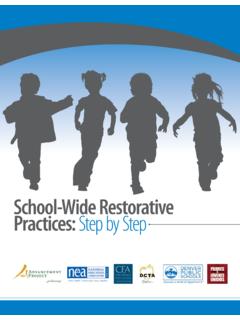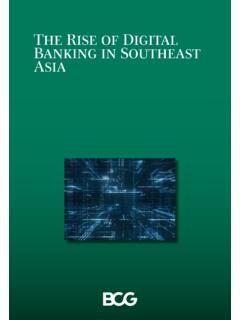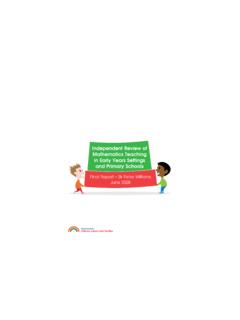Transcription of Academic Integrity: Information Systems Education …
1 Academic integrity : Information Systems Education Perspective Roger McHaney Department of Management Kansas State University Manhattan, KS 66506, USA Timothy Paul Cronan David E. Douglas Department of Information Systems Sam M. Walton College of Business University of Arkansas Fayetteville, AR 72701, USA ABSTRACT Academic integrity receives a great deal of attention in institutions of higher Education . Universities and colleges provide specific honor codes or have administrative units to promote good behaviors and resolve dishonesty allegations. Students, faculty, and staff have stakes in maintaining high levels of Academic integrity to ensure their degrees value and preserve respect for their institutions.
2 Often, these efforts result in disparate local dialogs and various approaches to create and maintain cultures of integrity . Despite this, Academic integrity receives relatively little attention in the Academic literature. Several underlying reasons may exist. First, people generally do not want to reveal dishonest actions and this makes research difficult. Second, students come from a variety of backgrounds and cultural settings with different perspectives on Academic integrity ; some from high school environments with differing views on Academic integrity . This context has resulted in the growth of Information services and software products designed to structure and enable Academic integrity activities and compliance.
3 However, taken by themselves, these services provide only a partial solution. The current special issue is set against this dynamic backdrop and seeks to bring necessary discussions into the open, particularly for those teaching and researching in areas related to Information Systems . Our special issue offers a venue where research and practice come together in the voices of our contributors. Specifically, our articles include perspectives of Academic integrity in online courses; using reflective methods to reduce plagiarism; giving voice to values as a means of promoting ethical actions; and general perspectives on a large- scale Academic integrity program.
4 Keywords: Academic integrity , Ethics, Academic integrity program, Plagiarism, Academic dishonesty, Information & communication technologies (ICT) 1. INTRODUCTION Whoever is careless with the truth in small matters cannot be trusted with important matters. Albert Einstein Academic integrity is not a new subject. As such, research summaries and literature reviews have periodically appeared over the last 20 years ( , Jordan, 2001; Keith-Spiegel et al., 1998; McCabe et al., 2001; Molnar et al., 2008). These studies demonstrate that while concepts and reasons for ensuring Academic integrity remain relatively constant, environments for learning are dramatically different in today s digitally enhanced version of higher Education (McHaney, 2011).
5 Several researchers have studied Academic integrity to further understand these phenomena, and offer explanations and solutions (see Other Suggested References Section for key works). In recent years, educators have seen shifts in Information acquisition and access, exchange, and storage with direct impact on integrity . For instance, the Information revolution has resulted in internationalization of educational institutions, global Information exchange and sharing, proliferation of mobile devices, social media interactions, and ubiquitous access to easily copied and manipulated Information .
6 These changes Journal of Information Systems Education , Vol. 27(3) Summer 2016153alter how students navigate educational experiences, how educators deliver and assess content, and how educators must view student expectations. There is no doubt that maintaining Academic integrity is a cornerstone of Education (and society). Intellectual progress of both students and their teachers requires that truthfulness remains central. Without trust, the free exchange of ideas becomes little more than trading documents. 2. CURRENT ISSUES IN Academic integrity RESEARCH Academic integrity research comprises several key areas. In their recent work, Macfarlane and colleagues (2014, pp.)
7 343 344) provide a general literature review detailing many of these areas. Of specific interest to the current issue are codes of conduct, plagiarism, and proposed solutions. Codes of Conduct In early Academic integrity research, McCabe, Trevino, and Butterfield (1996, p. 461) discussed codes of conduct defined as a community s attempt to communicate its expectations and standards of ethical behaviors. They went on to suggest that college represented a period of significant change and moral development for many college students (p. 462). This gives educators a unique opportunity to positively influence moral development which in turn may influence ethics-based behaviors throughout an individual s lifetime.
8 Adding credence to this are McCabe et al. s (1996) findings that self-reported ethical behaviors among people in the workplace correlated with collegiate honor code experiences. Subsequent research affirmed the importance of codes of conduct and provided insight into implementation considerations (McCabe, Butterfield, and Trevino, 2003, 2006). Other research indicated college codes of conduct, considering both student and faculty behaviors, often suggested a low road approach (Rezaee, Elmore, and Szendi, 2001) and needed reevaluation. Improvements such as: (1) greater emphasis on preventing financial, scientific, and Academic fraud; (2) more inclusion of faculty in the process; and (3) establishment of proper processes for implementation of the code all provide more effective outcomes.
9 Plagiarism Without a doubt, tools that enable either intentional or unintentional plagiarism have proliferated. In her book, Plagiarism, the Internet, and Student Learning: Improving Academic integrity , Sutherland-Smith (2008) provides ample examples of how modern technologies have exacerbated this issue and how educators concerns about the problem have skyrocketed. The ability of students to locate, copy, paste, and share Information has never been easier. Making this worse are new software, sharing, and mobile tools developed specifically to make the process of cheating easier (De Paoli and Kerr, 2009; Ma, Wan, and Lu, 2008; Moran, 2008).
10 New aspects of an old problem ensure the necessity of research in this area. Not only are new technologies facilitating the physical act of copying material, they also affect various elements within the process. For example, to be plagiarism, Sutherland-Smith (2008) suggests the following items must be present (derived from Pecorari, 2002): An object (language, words, text) which has been taken (or borrowed, stolen, etc.) from a particular source (books, journal, Internet) by an agent (student, person, Academic ) without (adequate) acknowledgement and with or without intention to deceive. Mobile computing, social media, search engines, and software tools all have impacts in each area of this definition.




